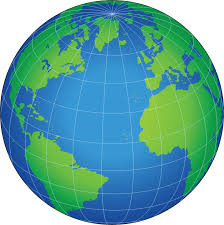记忆方法
将“globe”与地球仪联系起来进行记忆。想象一个地球仪形状的“球体”(-ball),它代表整个世界(-globe)。通过这种视觉联想,你可以记住“globe”是指地球或球状物体。
以上内容由AI生成, 仅供参考和借鉴
中文词源
globe 地球仪
来自PIE*glebh, 球体,成球状,词源同cling, glue. 用来指地球仪。
英语词源
- globe
-
globe: [16] Globe comes from Latin globus, probably via Old French globe. Globus was related to glēba ‘lump of earth’ (source of English glebe [14]), and may denote etymologically ‘something rolled up into a ball’.
=> glebe - globe (n.)
- late 14c., "a large mass;" mid-15c., "spherical solid body, a sphere," from Middle French globe (14c.) and directly from Latin globus "round mass, sphere, ball" (also, of men, "a throng, crowd, body, mass"), which is related to gleba "clod, lump of soil" (see glebe) and perhaps glomus "a ball, ball of yarn," but de Vaan says the last two probably are non-IE loan-words. Sense of "the planet earth," also "map of the earth or sky drawn on the surface of an artificial sphere" are attested from 1550s. Meaning "globe-shaped glass vessel" is from 1660s. "A globe is often solid, a sphere often hollow. The secondary senses of globe are physical; those of sphere are moral." [Century Dictionary"].
权威例句
- 1. The overhead light was covered now with a white globe.
- 现在,顶灯已装上了一个白色球状罩子。
- 2. Martin, 78, died yesterday. Tributes poured in from around the globe.
- 马丁于昨天去世,享年78岁。世界各地的人们纷纷致以哀悼。
- 3. America's media companies bestride the globe.
- 美国的传媒公司称雄寰球。
- 4. He still wheels and deals around the globe.
- 他仍然在世界各地招摇撞骗。
- 5. tourists from every corner of the globe
- 来自世界各地的游人

